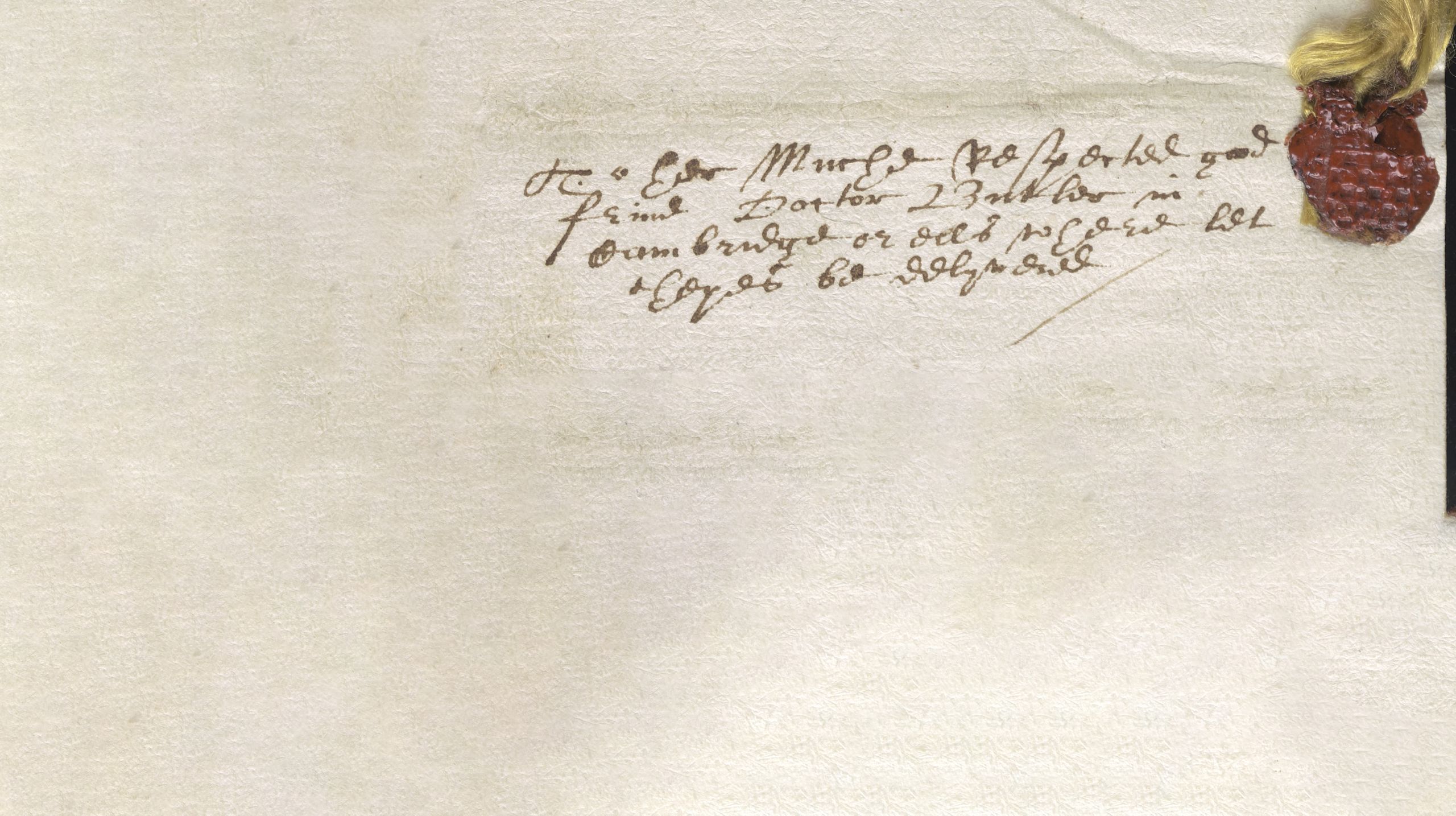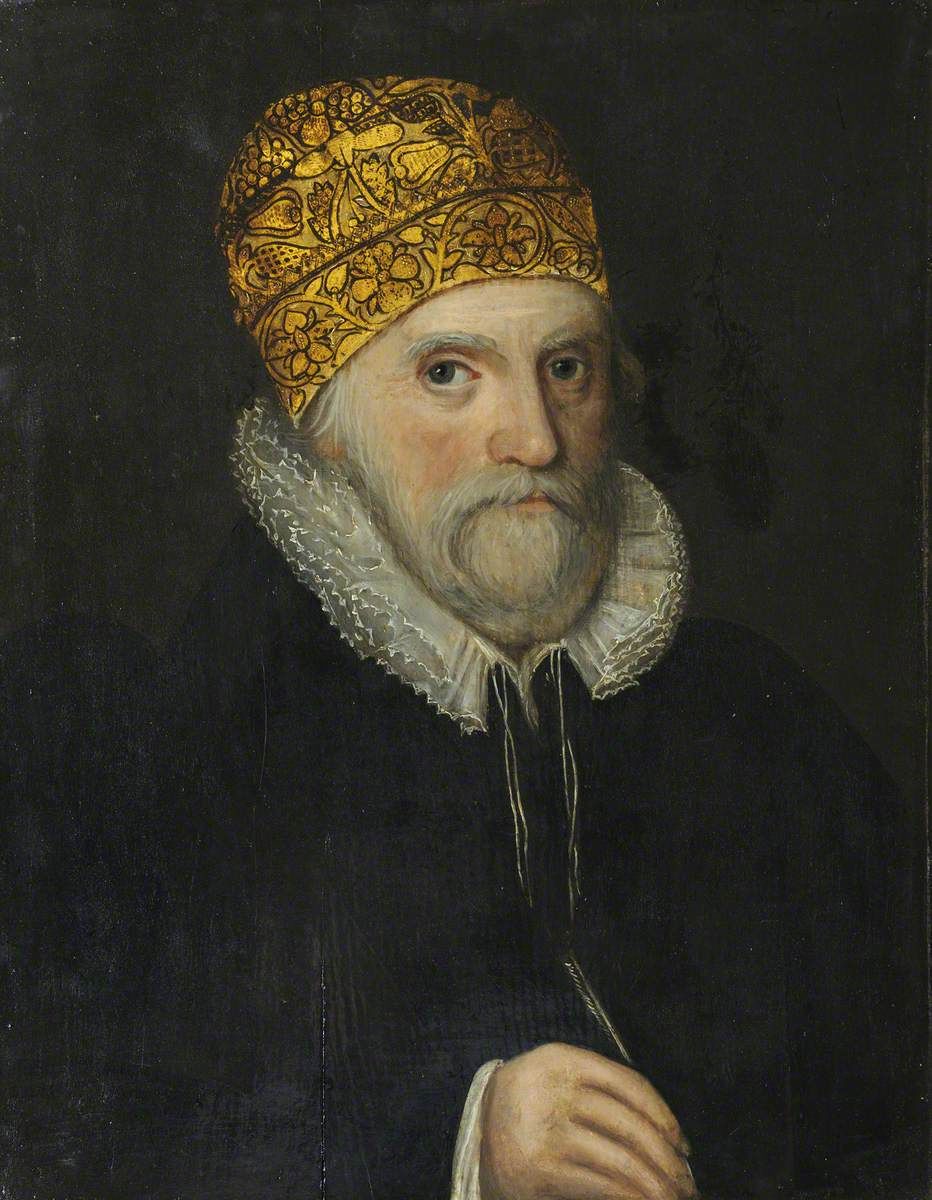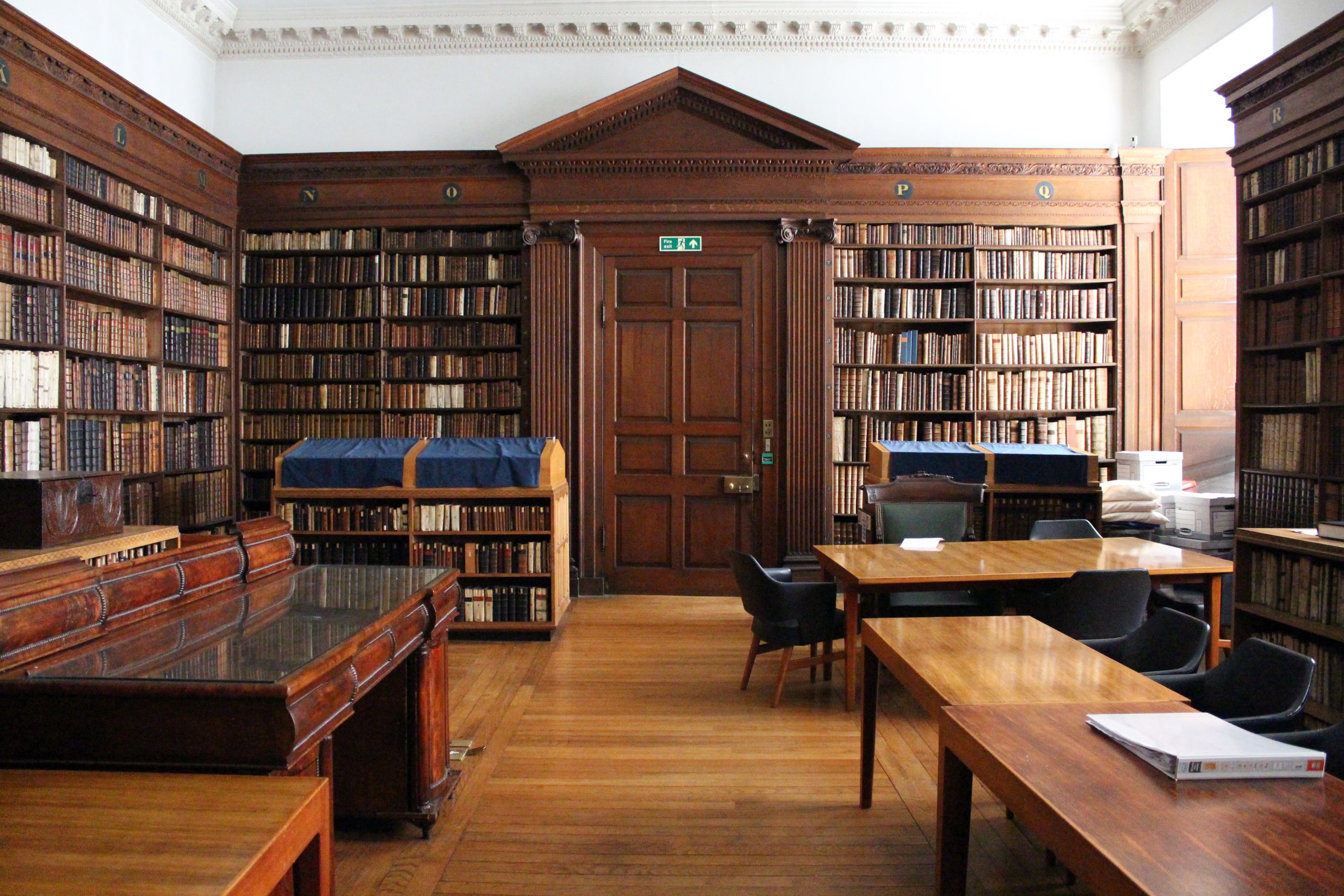Doctor Butler,
A Cambridge Character

William Butler (1535-1618), Fellow of Clare College, was known to his contemporaries as a remarkable and eccentric physician.
Clare Archivist, Jude Brimmer, takes a look at a fascinating collection of his manuscripts held in the College Archives.

William Butler was elected a Fellow of Clare in 1572, after studying first at Peterhouse. Despite taking no formal medical degree, he gained a significant reputation within the medical community, and was known to have acted as physician to King James I. Widely considered an eccentric, his restorative techniques were uniquely imaginative: he is said to have revived a man suffering from an accidental opium overdose by placing him in the chest cavity of a recently-slaughtered cow, and cured another patient of a fever by having him thrown off a balcony into the Thames.
The Butler manuscripts we have inherited were found by Dr C H W Page of the Norfolk Record Society when clearing the muniment room of Lord Suffield at Gunton Park, Norfolk.
How the papers came to Norfolk is far from clear, but we have Dr Page and Sir D’Arcy Power (from the Royal College of Surgeons) to thank that the significance of the collection was realised. They were donated to the Clare College Fellows Library in 1941, and later transferred to the College Archive by Fellows’ Librarian, Roger Schofield, in 1988.

The Fellows' Library, Clare College
The Fellows' Library, Clare College
The collection comprises manuscript copies of private correspondence and other texts written by William Butler. Evidently the vast majority are not the documents which were sent or received, but rather contemporary drafts or file copies. Frustratingly, none of William Butler's letters are dated, neither are many of the recipients clearly identified, though they include at least two ‘opinions’ seemingly written for James I. Many of the letters are in Butler's own distinctive hand, with a characteristic bold nib used for emphasis. The letters show a great wit, humour and a fondness for classical and biblical quotation, switching frequently between English, Latin and Greek. Butler also appears wonderfully free with his insults; in one case he brands an unnamed executor an ‘Asse’ and ‘Brasen faced lyer’ (CCPP/BTLR/36).

The insult 'Brasen faced lyer' is written using a bold nib for emphasis
The insult 'Brasen faced lyer' is written using a bold nib for emphasis
Some of the letters are to patients, giving diagnoses and recommendations for treatment, others discuss politics, alchemy, and some deal with College business – an altogether more familiar communication sees him contacting a wealthy alumnus to ask for funds:
‘I have presumed to send yowre Grace a petitioners letter. To bestowe Almasse [alms] upon one poare Man ys a wourke of Charitie, and God wyll reward it … But, to Enriche a poare Colledge… is closer to beauty and godliness’.

As well as Dr Butler’s own manuscripts, the collection includes a handful of letters received by him -some original, some copied - from significant contemporaries. The correspondents include Susan de Vere, Countess Montgomery (1587-1628/9), Samuel Harsnett, Bishop of Chichester (1561-1631) and Robert Cecil (1563-1612), Secretary of State and royal advisor.

Butler's seal
Butler's seal
We are delighted that the Butler papers have now been digitised, and are to be made available online as part of the wonderful Cambridge University Digital Library – look for the Clare College page coming soon at http://cudl.lib.cam.ac.uk/.


